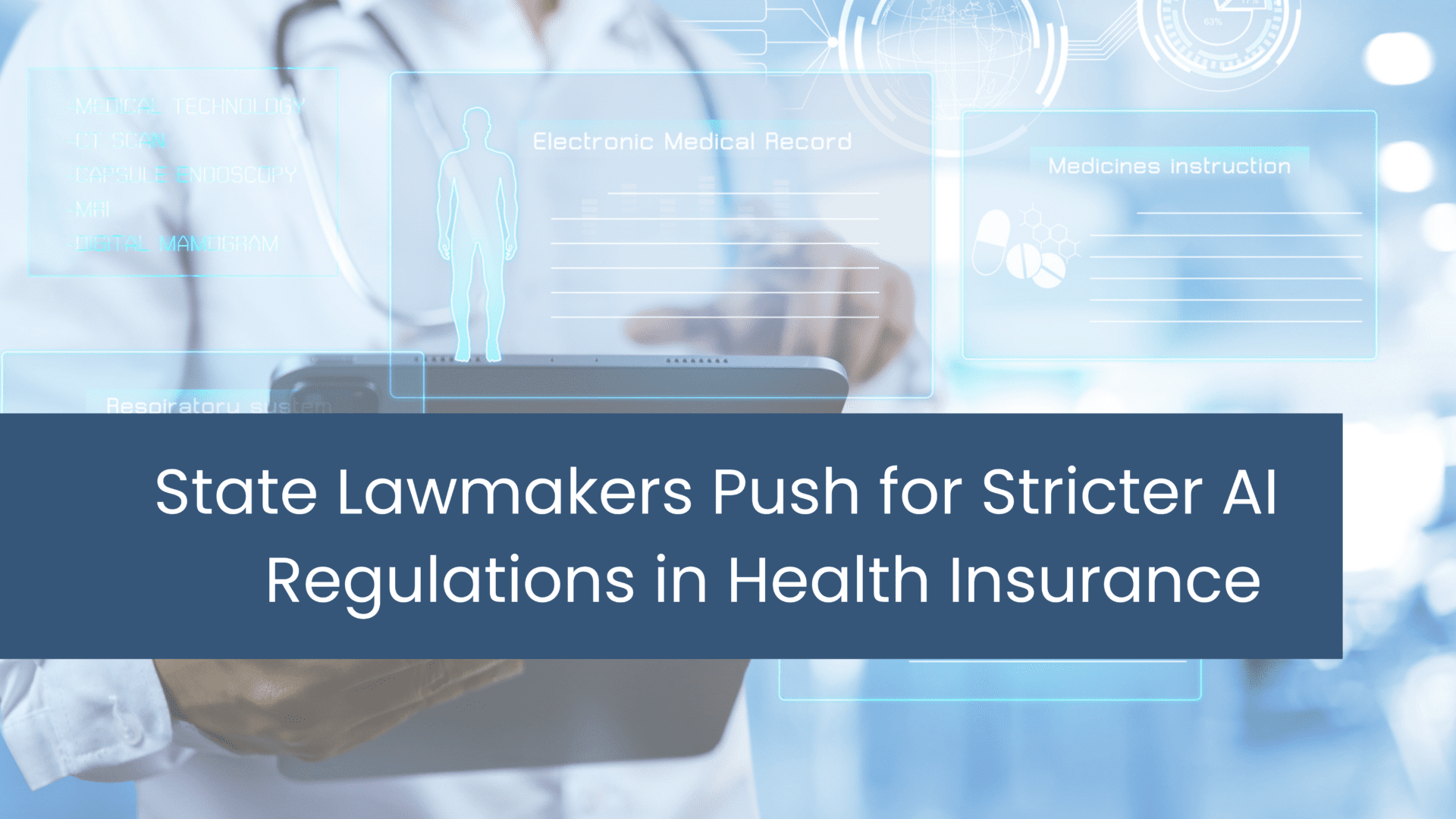State Lawmakers Push for Stricter AI Regulations in Health Insurance

Artificial Intelligence is revolutionizing industries. However, its role in health insurance is sparking controversy. As reports have emerged, most insurers are using automated tools and that is leading to a delay or denial in claims. This has urged lawmakers across the U.S. to attempt to regulate AI-driven coverage decisions.
A new law has been introduced by the state of California, namely SB1120, which became effective on January 1, 2025. According to this law, insurers are prohibited from using AI to determine whether medical treatments are necessary or not. Instead, a real doctor or medical expert must personally review and approve any denial, delay, or modification of care. As said by Wayne Turner, a senior attorney at the National Health Law Program, “Human decision-making must remain at the center of healthcare coverage.”
A lot of health insurance companies have been using AI to speed up claim approvals and detect identity fraud. The problem arises when AI is often used to deny care unfairly, and this leads to delayed treatments alongside financial hardship for patients. Major insurers like Humana, Cigna, and UnitedHealth are facing class-action lawsuits for allegedly using AI to wrongfully deny coverage. According to a U.S. Senate report from October 2024, it was found that there was a massive increase in rejected claims for follow-up care after hospital stays, especially for the insurance companies that started using AI more.
On the other hand, statements from insurers convey that AI is not replacing medical professionals in making final decisions. A trade group representing insurers, America’s Health Insurance Plans (AHIP) said, “Health plans do not use automated algorithms to issue clinically based denials of prior authorization requests. Any case that requires a clinical decision is reviewed by a licensed medical professional.”
Despite this, lawmakers in Georgia, Pennsylvania, and New York are planning to reintroduce bills in 2025 and bring more oversight to how AI is being used by insurers. Some believe that AI should be regulated rather than being banned. “I’m not ready to say AI should never be used in medical necessity reviews,” as said by Arvind Venkat, an emergency physician. “AI has potential benefits if used correctly. The key is transparency and human oversight.”
Some lawmakers also believe that AI regulation should extend beyond just insurers to hospitals, health systems, and medical providers who use AI for patient care decisions. Others raised concerns and stressed the need for a nationwide effort. As stated by Mandisha Thomas, Georgia lawmaker, “People are hurting—physically, financially, and emotionally. This issue isn’t just about AI. It’s about making sure people get the healthcare they deserve.”
Visibly, the debate on AI has only just begun. What is important at this point is that technology use must help patients rather than harm them, and that is what state legislators are pushing for. The challenge now is to find the right balance, that is, allowing AI to improve efficiency AND ensuring that human input prevents unfair denials. However, the results will be seen in the coming months, as they’ll shape policies to protect patients, hold parties accountable, and determine the place of AI in the future of healthcare.

